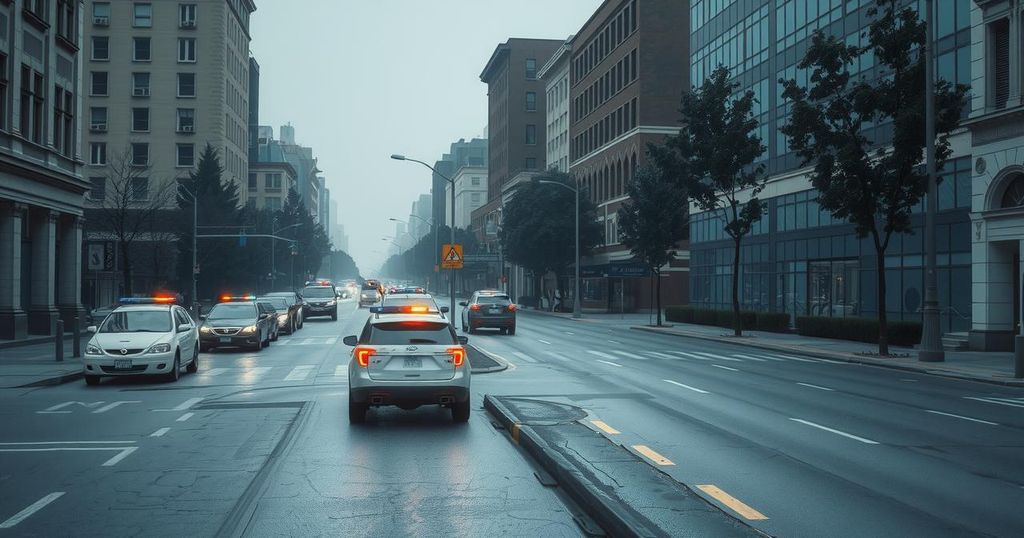Zimbabweans Remain at Home Amid Planned Protests Against Government

Zimbabweans largely stayed home on the day of planned protests against President Mnangagwa, leading to reduced traffic and school attendance. War veteran Blessed Geza called for an uprising but faced treason charges. Police enforced security measures and reported minimal protest activity.
On Monday, police established checkpoints leading to major cities in Zimbabwe, searching vehicles for potential weapons amid anticipated anti-government protests. A significant decrease in traffic was noted, particularly in Harare and Bulawayo, where citizens opted to stay home, with children absent from schools. In Bulawayo, police patrolled deserted streets, indicating heightened security measures to deter unrest.
Blessed Geza, a prominent war veteran, called for a protest against President Emmerson Mnangagwa, accusing him of failing to address corruption adequately. Geza, facing treason charges but avoiding capture, urged citizens on social media to join him in demonstrations. However, initial reports showed a lack of protest activity, with statements indicating that the anticipated turnout was low, likely due to fears of government reprisal.
By 8 AM, there were no visible protests, and many opted to remain indoors instead. While Geza hoped for mass mobilization, reports suggested he might only demonstrate an ability to instill public fear, impacting the economy due to non-operational businesses. Many large supermarkets in Harare and Bulawayo were shuttered in response to the tensions.
Authorities encouraged citizens to continue their daily routines, assuring them of adequate safety measures. In preparation, police had cancelled leave for officers, and a recent deposit of US$50 into their accounts further indicated government readiness to quell dissent. Additionally, police detectives were required to sign a loyalty document, reinforcing their commitment to following government directives and maintaining confidentiality regarding arrests.
The planned protests in Zimbabwe, spearheaded by war veteran Blessed Geza, led to a cautious public response with many choosing to stay home amidst fears of government action. Despite the call for an uprising against President Mnangagwa, initial observations indicated minimal protest activity. Police measures included heightened security and restrictions on officers, reflecting the government’s intent to maintain order and suppress dissent.
Original Source: www.thezimbabwemail.com







